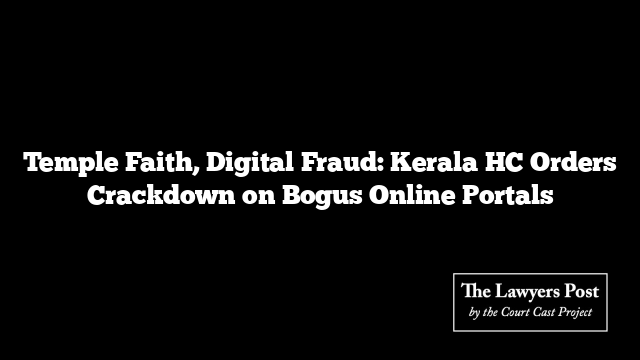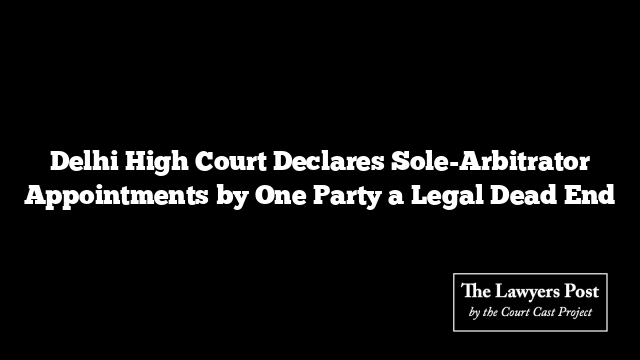The Kerala High Court has ordered a sweeping crackdown on fake websites and social media handles exploiting temple devotees under the guise of digital devotion.
The directive, passed by a Division Bench of Justices Anil K Narendran and PV Balakrishnan, calls on the Cochin Devaswom Board’s Chief Vigilance Officer to hunt down and neutralize fraudulent online entities that falsely collect pooja bookings and donations in the names of temples.
The court’s stern tone came in response to a plea from devotees of the revered Sree Poornathrayeesa Temple in Thripunithura, who raised alarm over rogue Instagram pages and other digital scams masquerading as official temple services.
“These platforms are misusing faith. What’s sacred is being commodified by cyber tricksters,” the Bench noted, calling for an ironclad, Board-authenticated online booking and donation system for major temples under its watch.
The ruling is more than a mere warning shot. The Vigilance Wing is now under court orders to remain on high alert. Any individual or group operating such deceptive pages or websites is to be reported to local police and acted upon as per law.
The backdrop: Petitioners revealed that despite the existence of official online portals for temples like Chottanikkara Bhagavathy, Sree Vadakkunnathan, Ernakulam Siva, and Poornathrayeesa, bogus accounts still managed to lure in unsuspecting devotees with cloned interfaces and convincing visuals.
The Board, for its part, acknowledged the issue—citing one such fake Instagram handle titled ‘Sree Poornathrayeesa Kshethram’ already under review—and promised corrective action.
The Court then went a step further. It ordered that every temple under the Board’s management must visibly display the URLs of its official websites and handles within its premises. Transparency, the judges made clear, must start at the sanctum.
Importantly, the Court issued a reminder rooted in temple jurisprudence: offerings made in a deity’s name are legally treated as the property of a perpetual minor — the deity — and must be held in trust by the Devaswom Board, not circulated through shadow channels or third-party volunteers.
The final word: An ongoing probe into alleged financial mismanagement and digital fraud by certain members of a former Temple Advisory Committee must conclude within three months, ensuring all stakeholders are heard.
In short, the Court is making it clear: when it comes to faith, even the internet must bend to the sacred.





